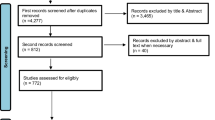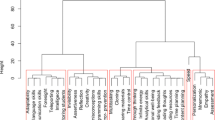Abstract
The purpose of this article is to study the impact of the use of digital interactive information technologies in Chinese political education on the civic participation of Chinese and foreign students. The study involved 347 Chinese and 298 foreign students China University of Political Science and Law University, School of Marxism (Shanghai); East China University of Political Science and Law (Shanghai); China Youth University of Political Studies (Beijing), who studied using digital interactive information technologies (experimental group 2); the control group consisted of 285 Chinese and foreign students who, during the experiment, studied political disciplines without the use of digital interactive information technologies. To investigate the students’ civic participation, the authors used a special semi-structured questionnaire, as well as the method “Diagnostics of the socio-psychological attitudes of a person in the motivational-need sphere” by O. Potemkina and the method “Motivation of professional activity” by K. Zamfir modified by A. A. Rean. Both Chinese and foreign students who received political education using digital interactive information technologies during the experiment turned out to be significantly more active in civilian life than those who studied without using these technologies.


Similar content being viewed by others
Data Availability
Data will be available on request.
References
Bacon, E. (2018). Teaching applied politics: From employability to political imaginary. Politics, 38(1), 94–108. https://doi.org/10.1177/0263395717694401.
Barrett, M., & Pachi, D. (2019). Youth Civic and Political Engagement. Routledge.
Bauer, M. W., & Falade, B. A. (2021). Public understanding of science: Survey research around the world. Routledge Handbook of Public Communication of Science and Technology (pp. 238–266). Routledge.
Bernauer, T., Dong, L., McGrath, L., Shaymerdenova, I., & Zhang, H. (2016). Unilateral or reciprocal climate policy? Experimental evidence from China. Politics and Governance, 4(3), 152–171. https://doi.org/10.17645/pag.v4i3.650.
Blair, A. (2017). Making and remaking the political: Lessons from the US experience of civic and political engagement in the teaching of political science. Politics, 7(4), 486–499. https://doi.org/10.1177/0263395716685932.
Borge, J. A. O. (2017). Tuning in to formal politics: Mock elections at school and the intention of electoral participation among first time voters in Norway. Politics, 37(2), 201–214. https://doi.org/10.1177/0263395716674730.
Bosi, L., Lavizzari, A., & Portos, M. (2022). The impact of intolerance on young people’s online political participation. Politics, 42(1), 95–127. https://doi.org/10.1177/02633957211014453.
Boulianne, S., Chen, K., & Kahane, D. (2020). Mobilizing mini-publics: The causal impact of deliberation on civic engagement using panel data. Politics, 40(4), 460–476. https://doi.org/10.1177/0263395720902982.
Broms, R., & de Fine, L. J. (2019). Preparing political science students for a non-academic career: Experiences from a novel course module. Politics, 39(4), 514–526. https://doi.org/10.1177/0263395719828651.
Bustikova, L., & Guasti, P. (2017). The illiberal turn or swerve in Central Europe? Politics and Governance, 5(4), 166–176. https://doi.org/10.17645/pag.v5i4.1156.
Cahit, E., Eylem, O., Cihat, A., & Hakkı, B. (2023). The mediating effect of digital literacy in the relationship between media literacy and digital citizenship. Education and Information Technologies, 28, 4875–4891. https://doi.org/10.1007/s10639-022-11354-4.
Chan, R. C., & Mak, W. W. (2020). Empowerment for civic engagement and well-being in emerging adulthood: Evidence from cross-regional and cross-lagged analyses. Social Science and Medicine, 244, 112703. https://doi.org/10.1016/j.socscimed.2019.112703.
Cowley, P., & Stuart, M. (2015). The effect of teaching parliamentary studies on students’ knowledge and attitudes: A pilot study. Politics, 35(2), 201–212. https://doi.org/10.1111/1467-9256.12062.
De Kloet, J., Poell, T., Guohua, Z., & Chow, Y. F. (2019). The platformization of chinese society: Infrastructure, governance, and practice. Chinese Journal of Communication, 12(3), 249–256. https://doi.org/10.1080/17544750.2019.1644008.
Dendev, B. (2013). Information and communication technologies in education: Monograph. Moscow: UNESCO IITE.
Feeney, S., & Hogan, J. (2019). Using drawings to understand perceptions of civic engagement across disciplines: ‘Seeing is understanding’. Politics, 39(2), 233–251. https://doi.org/10.1177/0263395717740033.
Grasso, M., & Giugni, M. (2022). Intra-generational inequalities in young people’s political participation in Europe: The impact of social class on youth political engagement. Politics, 42(1), 13–38. https://doi.org/10.1177/02633957211031742.
Grasso, M., & Smith, K. (2022). Gender inequalities in political participation and political engagement among young people in Europe: Are young women less politically engaged than young men? Politics, 42(1), 39–57. https://doi.org/10.1177/02633957211028813.
Haidar, S., & Fang, F. (2019). English language in education and globalization: A comparative analysis of the role of English in Pakistan and China. Asia Pacific Journal of Education, 39(2), 165–176. https://doi.org/10.1080/02188791.2019.1569892.
Holecz, V., Fernández, G. G. E., & Giugni, M. (2022). Broadening political participation: The impact of socialising practices on young people’s action repertoires. Politics, 42(1), 58–74. https://doi.org/10.1177/02633957211041448.
Holmes, B. (2022). Equality and Freedom in Education: A comparative study. Routledge.
Howson, C. K., & Buckley, A. (2020). Quantifying learning: Measuring student outcomes in higher education in England. Politics and Governance, 8(2), 6–14. https://doi.org/10.17645/pag.v8i2.2564.
Jie-Feng, W. (2017). Research on the innovation of ideological and political education of university students in the we-media and big data era. In 2017 9th International Conference on Measuring Technology and Mechatronics Automation (ICMTMA) (pp. 403–407). IEEE. https://doi.org/10.1109/ICMTMA.2017.0103
Kennedy, J., Nagao, H., & Liu, H. (2018). Voting and values: Grassroots elections in rural and urban China. Politics and Governance, 6(2), 90–102. https://doi.org/10.17645/pag.v6i2.1331.
Kiess, J. (2022). Learning by doing: The impact of experiencing democracy in education on political trust and participation. Politics, 42(1), 75–94. https://doi.org/10.1177/0263395721990287.
Knobloch, K. R., & Gastil, J. (2015). Civic (Re)socialisation: The educative effects of deliberative participation. Politics, 35(2), 183–200. https://doi.org/10.1111/1467-9256.12069.
Knowles, R. T., Torney-Purta, J., & Barber, C. (2018). Enhancing citizenship learning with international comparative research: Analyses of IEA civic education datasets. Citizenship Teaching and Learning, 13(1), 7. https://doi.org/10.1386/ctl.13.1.7_1.
Kogevina, A. P., & Osharova, I. A. (2020). Features of professional motivation of university students. Global and Regional Research, 2(2), 350–356.
Li, L. (2017). Teaching of ideological and political education for college students from the perspective of culture. DEStech Transactions on Social Science Education and Human Science, 1, 656–661.
Lin, Y. (2018). A comparison of selected western and chinese smart governance: The application of ICT in governmental management, participation and collaboration. Telecommunications Policy, 42(10), 800–809. https://doi.org/10.1016/j.telpol.2018.07.003.
Lovenduski, J., & Hills, J. (2018). The politics of the second electorate: Women and public participation: Britain, USA, Canada, Australia, France, Spain, West Germany, Italy, Sweden, Finland, Eastern Europe, USSR, Japan. Routledge.
Motos, C. R. (2019). Let the citizens fix this mess!’ Podemos’ claim for participatory democracy in Spain. Politics and Governance, 7(2), 187–197. https://doi.org/10.17645/pag.v7i2.1893.
Niebert, K. (2019). Effective sustainability education is political education. On Education Journal for Research and Debate, 2(4), 1–5. https://doi.org/10.17899/on_ed.2019.4.5.
Pelevin, S., Taubaev, B., Tileubergenov, Y., & Vasiliev, A. (2018). The participation of youth of western countries in political life of the society: The youth in the political life of the society. Journal of Advanced Research in Law and Economics, 9, 761.
Perry, E. J. (2018). Introduction: Chinese political culture revisited. In Popular Protest and Political Culture in Modern China (pp. 1–14). Routledge. https://doi.org/10.4324/9780429494826-1
Persson, M., Solevid, M., & Öhrvall, R. (2013). Voter turnout and political equality: Testing the ‘Law of Dispersion’ in a swedish natural experiment. Politics, 33(3), 172–184. https://doi.org/10.1111/1467-9256.12012.
Pirannejad, A., Janssen, M., & Rezaei, J. (2019). Towards a balanced E-Participation index: Integrating government and society perspectives. Government Information Quarterly, 36(4), 101404. https://doi.org/10.1016/j.giq.2019.101404.
Reichert, F., & Torney-Purta, J. (2019). A cross-national comparison of teachers’ beliefs about the aims of civic education in 12 countries: A person-centered analysis. Teaching and Teacher Education, 77, 112–125. https://doi.org/10.1016/j.tate.2018.09.005.
Ryan, J. (2019). Education in China: Philosophy, Politics and Culture. John Wiley and Sons.
Sahin, A. (2018). Critical issues in islamic education studies: Rethinking islamic and western liberal secular values of education. Religions, 9(11), 335. https://doi.org/10.3390/rel9110335.
Shaturaev, J. (2021). 2045: Path to nation’s golden age (Indonesia Policies and Management of Education). Science and Education, 2(12), 866–875.
Shi, G., Chan, K. K., & Lin, X. F. (2023). A systematic review of digital citizenship empirical studies for practitioners. Education and Information Technologies, 28, 3953–3975. https://doi.org/10.1007/s10639-022-11383-z.
Stockemer, D., & Rapp, C. (2019). The influence of various measures of health on different types of political participation. Politics, 39(4), 480–513. https://doi.org/10.1177/0263395719844700.
Suter, L. E., Smith, E., & Denman, B. D. (2019). The SAGE handbook of comparative studies in Education. SAGE Publications Ltd.
Whyte, M. K. (2019). Urban China: a civil society in the making? In State and Society in China (pp. 77–101). Routledge. https://doi.org/10.4324/9780429307416-4
Yu, H. (2021). Application analysis of new internet multimedia technology in optimizing the ideological and political education system of college students. Wireless Communications, 2021, 5557343. https://doi.org/10.1155/2021/5557343
Zagranichny, A. I. (2020). The relationship of socio-psychological attitudes and the frequency of manifestation of various forms of social activity. Gender Aspect The World of Science Pedagogy and Psychology, 8(2), 41.
Zhang, C. (2020). Right-wing populism with chinese characteristics? Identity, otherness and global imaginaries in debating world politics online. European Journal of International Relations, 26(1), 88–115. https://doi.org/10.1177%2F1354066119850253.
Zhang-Wu, Q. (2018). Chinese international students’ experiences in American higher education institutes: A critical review of the literature. Journal of International Students, 8(2), 1173–1197. https://doi.org/10.32674/jis.v8i2.139.
Zhao, X., & Zhang, J. (2021). The analysis of integration of ideological political education with innovation entrepreneurship education for college students. Frontiers in Psychology, 12, 610409. https://doi.org/10.3389/fpsyg.2021.61040.
Funding
This research did not receive any specific grant from funding agencies in the public, commercial, or not-for-profit sectors.
Author information
Authors and Affiliations
Corresponding author
Ethics declarations
Competing interests
The authors declare that they have no competing interests.
Additional information
Publisher’s Note
Springer Nature remains neutral with regard to jurisdictional claims in published maps and institutional affiliations.
Appendix 1
Appendix 1
No. | Statement | Answer | ||||
|---|---|---|---|---|---|---|
Strongly agree | Agree | Neutral | Disagree | Strongly disagree | ||
1. | Political education is very important for a professional career | |||||
2. | Civic engagement depends more on the person’s character than on his/her political education | |||||
3. | I always participate in elections | |||||
4. | Civic participation allows influencing political decision-making | |||||
5. | I am involved in human rights organizations | |||||
6. | I distrust political institutions | |||||
7. | I took part in protest promotions | |||||
8. | I am volunteering | |||||
9. | I am involved in charitable organizations | |||||
10. | Participation in democratic practices at the university distracts from studies | |||||
11. | Political education helps self-determination | |||||
12. | I blog on social media | |||||
13. | I care about climate change | |||||
14. | Solving environmental problems does not depend on the students’ civic participation | |||||
15. | I do not support the values of Western democracy | |||||
16. | Participation in elections is an activity for pensioners | |||||
17. | Signing petitions is an effective form of civic participation | |||||
18. | I am a member of a political party | |||||
19. | I am not interested in a political career | |||||
20. | The development of digital technologies contributes to the democratization of society | |||||
21. | The basics of political science should be a compulsory subject in all faculties of the university | |||||
22. | Civic participation has a positive impact on social and psychological well-being | |||||
23. | Civic participation allows controlling the socio-political system | |||||
24. | Political education contributes to the development of personal potential | |||||
25. | I believe that political education at the university is… | |||||
Rights and permissions
Springer Nature or its licensor (e.g. a society or other partner) holds exclusive rights to this article under a publishing agreement with the author(s) or other rightsholder(s); author self-archiving of the accepted manuscript version of this article is solely governed by the terms of such publishing agreement and applicable law.
About this article
Cite this article
Chen, H. Digital interactive information technologies in political education and civic participation of students of Chinese universities. Educ Inf Technol 29, 3903–3921 (2024). https://doi.org/10.1007/s10639-023-11951-x
Received:
Accepted:
Published:
Issue Date:
DOI: https://doi.org/10.1007/s10639-023-11951-x




